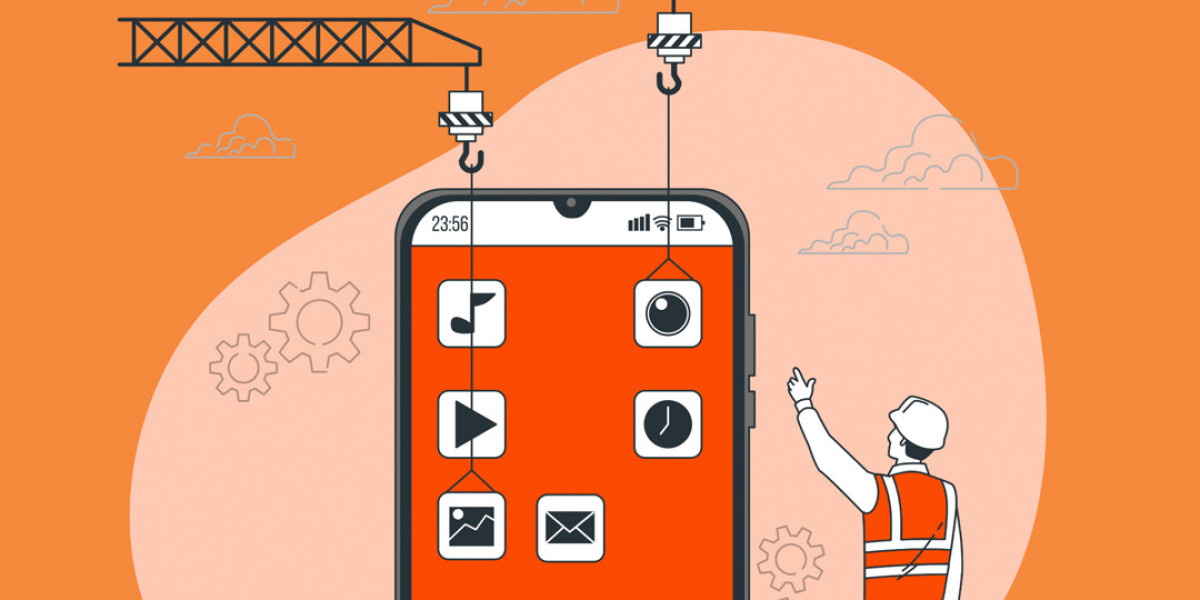1. Conceptualization: Turning Ideas into Reality
The journey of mobile app development begins with a clear and well-defined idea. This stage involves brainstorming, researching, and outlining the core functionality of your app. Consider the following steps:
Identify the Problem: What issue does your app solve? Understanding this will help you define its purpose and unique value proposition.
Market Research: Analyze your competitors and identify gaps in the market. This will help you tailor your app to meet specific needs and stand out.
Define Your Target Audience: Knowing who will use your app will guide the design and functionality decisions.
2. Planning: Crafting a Roadmap
Once you have a solid idea, it’s time to plan how to bring it to life. This involves:
Creating a Requirements Document: Outline the features, functionalities, and technical requirements of your app.
Choosing a Platform: Decide whether to develop for iOS, Android, or both. This will impact your design and development strategy.
Budgeting: Determine your budget, considering development costs, marketing, and maintenance.
3. Design: Building the User Experience
Design is a critical component of app development, focusing on both user interface (UI) and user experience (UX). Key aspects include:
Wireframing: Create basic sketches or digital prototypes of your app’s layout and functionality.
UI/UX Design: Develop the visual elements and interactive features of your app. Ensure the design is intuitive and aligns with your brand’s identity.
User Feedback: Test your designs with potential users to gather feedback and make improvements.
4. Development: Bringing Your App to Life
With the design in place, the development phase begins. This stage involves:
Front-End Development: Focuses on the app’s interface and how users interact with it. This includes developing the layout, navigation, and visual elements.
Back-End Development: Involves creating the server-side components, databases, and application logic that power the app.
Integration: Connect your app with third-party services, APIs, and databases as needed.
5. Testing: Ensuring Quality and Performance
Before launching your app, thorough testing is essential to ensure it works correctly and provides a positive user experience. Testing should include:
Functional Testing: Verify that all features work as intended.
Performance Testing: Check the app’s speed, responsiveness, and stability.
Usability Testing: Ensure the app is user-friendly and easy to navigate.
Compatibility Testing: Test the app on various devices and operating systems to ensure it performs consistently.
6. Launch: Releasing Your App to the World
After successful testing, it’s time to launch your app. This involves:
App Store Submission: Prepare and submit your app to app stores like Google Play and the Apple App Store. Ensure you meet all their guidelines and requirements.
Marketing and Promotion: Develop a marketing strategy to promote your app. This may include social media campaigns, influencer partnerships, and press releases.
Monitoring and Support: After launch, monitor user feedback and performance metrics. Be prepared to offer support and release updates as needed.
FAQs
Q: What is the role of a mobile app development company?
A: A mobile app development company provides expertise in designing, developing, and launching mobile apps. They handle technical aspects, including coding, testing, and integrating features, ensuring the app meets your requirements and performs well.
Q: How do I choose the right mobile app development company in Pune?
A: Look for a company with a proven track record, positive client reviews, and a portfolio of successful projects. Consider their experience with your app’s platform, their development process, and their ability to understand and execute your vision.
Q: What are the key factors to consider when budgeting for app development?
A: Consider development costs, including design, coding, testing, and any third-party services. Also, budget for marketing, maintenance, and potential updates. Getting detailed quotes and understanding the scope of work will help in budgeting effectively.
Q: How long does it take to develop a mobile app?
A: The timeline for app development varies based on complexity, features, and the development team’s efficiency. On average, it can take anywhere from 3 to 6 months, but more complex apps may require more time.
Q: What should I do if my app faces issues after launch?
A: Monitor user feedback and performance metrics to identify and address issues. Regular updates, bug fixes, and customer support are essential to maintaining app performance and user satisfaction.
Conclusion
Navigating the mobile app development process can be complex, but with the right guidance and expertise, you can turn your app idea into a successful reality. Partnering with a skilled mobile app development company is crucial for achieving your goals and ensuring a smooth development journey.
Implause IT Solution is a leading mobile app development company in Pune, specializing in delivering innovative and high-quality mobile applications. Their experienced team provides end-to-end services, from initial concept to final launch, ensuring your app meets the highest standards of performance and user experience.
For expert guidance and exceptional results, trust Implause IT Solution to bring your mobile app vision to life. Contact them today to get started on your app development journey and make your ideas a reality.
This comprehensive guide aims to provide valuable insights into the mobile app development process, adhering to the EAT (Expertise, Authoritativeness, Trustworthiness) algorithm to ensure accurate and reliable information.
Search
Popular Posts








